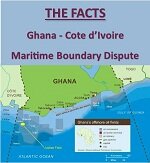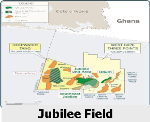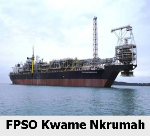GHANA'S ENVIRONMENTAL PROTECTION ACT OF 1994 (ACT 490) AND THE OFFSHORE PETROLEUM INDUSTRY - MARINE ENVIRONMENTAL POTHOLE FILLING
- Details
- Created on Wednesday, 06 July 2011 11:36
Osei Bonsu Dickson*
Barrister & Solicitor
The Environmental Protection Act, 1994 maps the mandate, functions, structure and funding of the EPA. The mandate of the EPA includes formulating environmental policy and making recommendations for the protection of the environment. The EPA is responsible for ensuring compliance with EIA procedures in the planning and implementation of development projects, including compliance with respect to existing projects. This requires that any project likely to have potentially adverse effects on the environment be subjected to an EIA
The EPA is responsible under section 2(f) of EPA Act 1994 for the issuance of environmental permits and pollution abatement notices for controlling waste discharges, emissions, deposits or other sources of pollutants. They also issue notices in the form of directives, procedures or warnings for the purpose of controlling noise in the environment.
Under section 2(h) it is the EPA function "to prescribe standards and guidelines relating to air, water, land and other forms of environmental pollution including the discharge of wastes and the control of toxic substances" Under section 12 (1) "The Agency may by notice in writing require any person responsible for any undertaking which in the opinion of the Agency has or is likely to have adverse effect on the environment to submit to the Agency in respect of the undertaking an environmental impact assessment containing such information within such period as shall be specified in the notice". Also, under Section 15(1), The EPA working through Environment Protection Inspectors (EPIs) referred to in the Act as "Inspectors" have power to enter and inspect at any reasonable time premises for the purpose of ensuring compliance with environmental law. These sweeping powers taken together imply that the EPA at least in theory can generally manage or control environmental risks resulting from E&P activities.
Regulation 6 of the Environmental Assessment Regulation, 1999 LI 1652 , Schedule 1 Part 1 (Undertaking Requiring Registration and Environmental Permit) requires that an Environmental Permit to be obtained for crude oil and natural gas activities in Ghana - this includes crude oil or petroleum production facilities as well as natural gas facilities. Further, Appendix 2, of the EPA's "Environmental Assessment in Ghana, A Guide" requires registration with the Agency of all undertakings such as "Mining (including milling), quarry and oil wells". This means activities related to oil exploration and production (crude oil, petroleum or natural gas) are caught by the provision.
Absence of Specific Regulations
The EPA regulations existing at this time do not address themselves specifically to the petroleum industry whether onshore and offshore. And it is not just detailed Offshore Petroleum Exploration, Production and Conservation Regulations that are lacking there is a corresponding dearth of technical environmental regulations beyond the current regime of EIAs and environmental rules of general application. For example the study reveals that currently there are no specific rules or regime covering very key upstream issues like:
- Operator equipments,
- Well operation and management regulations,
- Disposal of waste material, produced water and drilling fluids regulations,
- Reservoir management regulations,
- Well construction regulations,
- Production testing regulations,
- Suspension of operations regulations,
- Safety and training of personnel regulations,
- Oil spills regulations,
- Specific regulations on emissions to air (Nox, VOC, Flaring, CO2 separated from produced gas)
- Investigation of accidents regulations,
- Well, Pool and Field Evaluations regulations
- Daily production record regulations,
- Testing regulations
- Use and discharge of chemicals
- Injection of cuttings or C02, water containing oil etc
- Defective or experimental equipment regulations
- Oil and Gas Spills and Debris Liability Regulations
- Requirements for drilling installations regulations
- Safety and escape arrangements regulations
- Blowout preventer system requirements
- Casing and Drilling fluid system regulations
- Well Drilling regulations
- Blow-outs regulations
- Volume of drilling fluid
- Inspections and Testing regulations
The existing regime is thus neither substantive and/or specific enough to meet the potential problems related to the industry. Equipment quality, maintenance and replacement regulations or regulations covering support crafts, stand-by vessels, well control equipments, drilling equipments are for example issues of not merely technical but serious environmental concern.
There is need for clear guidance and rules about what infrastructure, equipments, or technology are acceptable in Ghana for what activities, and similarly what is not. In fact without this all types of inappropriate equipments and what is called "dirty" technology will be brought into the country once it maximizes or assures operator profit.
Reviewing Regulatory Gaps and Deficits
There are regulatory gaps which require immediate attention. A clearer problem-appreciation can only be had when a brief gap analysis is made to ascertain the extent of Ghana's regulatory deficit. Canada- Nova Scotia's is highly regarded in terms of its comprehensive environmental regulation of upstream oil and gas activities. It is therefore helpful to resort to such as jurisdiction for some rudimentary guidance on regulation-making at the present time. Some of the pertinent environmental regulations in force in that jurisdiction, includes the Nova Scotia Offshore Petroleum Production and Conservation Regulations, the Nova Scotia Offshore Area Oil and Gas Spills and Debris Liability Regulations, the Nova Scotia Offshore Area Petroleum Diving Regulations, the Nova Scotia Nova Scotia Offshore Area Petroleum Drilling Regulations, the Nova Scotia Offshore Area Petroleum Geophysical Operations Regulations, the Nova Scotia Offshore Area Petroleum Installations Regulations.
---------------------------------------------------------------------------------------------------------
*O.B. Dickson is a Ghanaian lawyer. He specializes among others in Oil & Gas Law and Regional Security Policy in the Gulf of Guinea. He may be reached on +233(0)241 022 964 or via
This email address is being protected from spambots. You need JavaScript enabled to view it.
.






